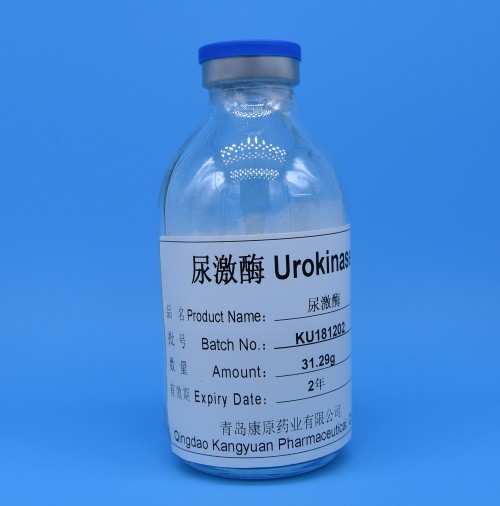Urokinase, also known as urokinase-type plasminogen activator (uPA), is a
protein enzyme that plays a vital role in the breakdown of blood clots. It has
proven to be an effective treatment option for patients suffering from various
thrombotic diseases.
The production of urokinase involves the use of specific recombinant DNA
technology. The urokinase manufactureruses the bacteria Escherichia coli to
produce the protein, which is then purified and formulated into a
medication.
Urokinase works by activating the clot-dissolving enzyme plasminogen, which
is present in plasma. Once activated, plasminogen converts into plasmin, which
effectively breaks down the clot. This process is crucial in the treatment of
patients with acute ischemic stroke, deep vein thrombosis, pulmonary embolism,
and myocardial infarction.

Urokinase has several advantages over other thrombolytic agents. It has a
shorter half-life, which means it is quickly cleared from the body, reducing the
risk of bleeding complications. Additionally, it has a high affinity for fibrin,
the main component of clots, which results in a targeted and efficient clot
breakdown. Urokinase can also be administered through various routes, including
intravenous injection, local infusion, or catheter-directed delivery.
Despite its effectiveness, urokinase is not without side effects. The most
common side effects include bleeding, hypotension, fever, and allergic
reactions. Therefore, close monitoring is necessary during treatment.
In conclusion, the production of urokinase involves advanced technology
that enables the treatment of thrombotic diseases. The benefits of urokinase are
vast, including its targeted and efficient clot breakdown, short half-life, and
various administration routes. Urokinase is indeed a miracle drug in treating
blood clots.